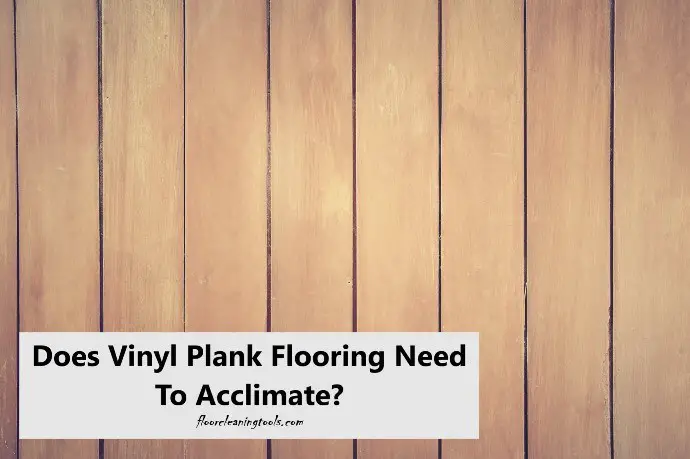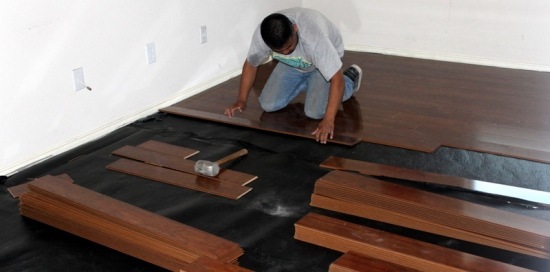Vinyl plank flooring is one of the favorite choices of homeowners. However, this type of flooring needs time to adapt to the new environment before installation. To allow it to become accustomed to this new environment, you must first acclimate your vinyl flooring!
Trust us; it would be your biggest mistake if you neglect this vital step! By acclimating the floor, you will not need to replace it after short-term use! That’s why it is a waste of time to repeat the answer to the question, “Does vinyl plank flooring need to acclimate?”
Let’s move on for a thorough guideline on how to acclimating your vinyl floor now!

Table of Contents
Does Vinyl Plank Flooring Need To Acclimate?
The answer to this question is Yes. It is necessary to acclimate vinyl plank floors!
Vinyl board floors are created with a porous, high-density core that seems entirely solid. The small holes in the core allow air to flow in the core, producing significant moisture.
Acclimating vinyl planks allows the floor and the environment to be familiar with each other; it also prevents future losses and financial problems. By applying this process, you will have complete peace of mind for the longevity and beauty of your floors!
Also read: Does Laminate Flooring Need to Acclimate? – Notes When Installing Laminate Flooring
How To Acclimate Vinyl Plank Flooring?

In fact, it does not take much time and effort to acclimate the vinyl flooring. These are a few steps you have to follow:
- Bring floorboards to the room you may install once you purchase the vinyl flooring.
- Gradually and carefully substitute the board floor in groups (either 15 or 20’s) with a box cutter or pocket knife.
- Make sure the tiles do not overlap. Give the planks a spacing of 4 feet. It allows the proper movement of air as the environment changes and avoids contraction.
- Run the air conditioner and the heater, maintain 65 to 85 Fahrenheit temps. In flats, you don’t have to have additional moisture.
- Finally, allow cooling through the stacked vinyl board for 48 hours before the main assembly.
What Happens If You Don’t Acclimate The Vinyl Plank Flooring?
If you don’t allow the vinyl to acclimatize, it will enlarge or contract when it comes to a warm location and is located in a much cooler climate; the vinyl decreases. This brings the floor down, and spaces are created between the panels.
If you put vinyl in a much hotter environment, your planks may even click-lock the boards at times. These difficulties would affect your floor’s lifespan and look!
Read more: How To Fix Vinyl Plank Flooring Separating
Conclusion
Does vinyl plank flooring need to acclimate? Yes, you do! As mentioned above, acclimation helps familiarize vinyl plank flooring to the environment. It also ensures longevity, maintains beauty, and prevents financial loss in the long term.
Besides, the steps to acclimate the vinyl plank are simple and easy and do not require you to be an expert! Make sure that you follow all the steps carefully and the result will surely satisfy you!
Thank you for stopping by. See you next time!
Related Post:
- Are Polypropylene Rugs Safe For Vinyl Floors? – Alternatives And Solutions
- How To Cut Vinyl Tile Around Toilet? – Detailed Guidelines And More!
- Vinyl Flooring On Stairs Pros And Cons – Should You Get Vinyl Flooring?
- How To Repair Scratches On Luxury Vinyl Flooring? Best Tips For You
